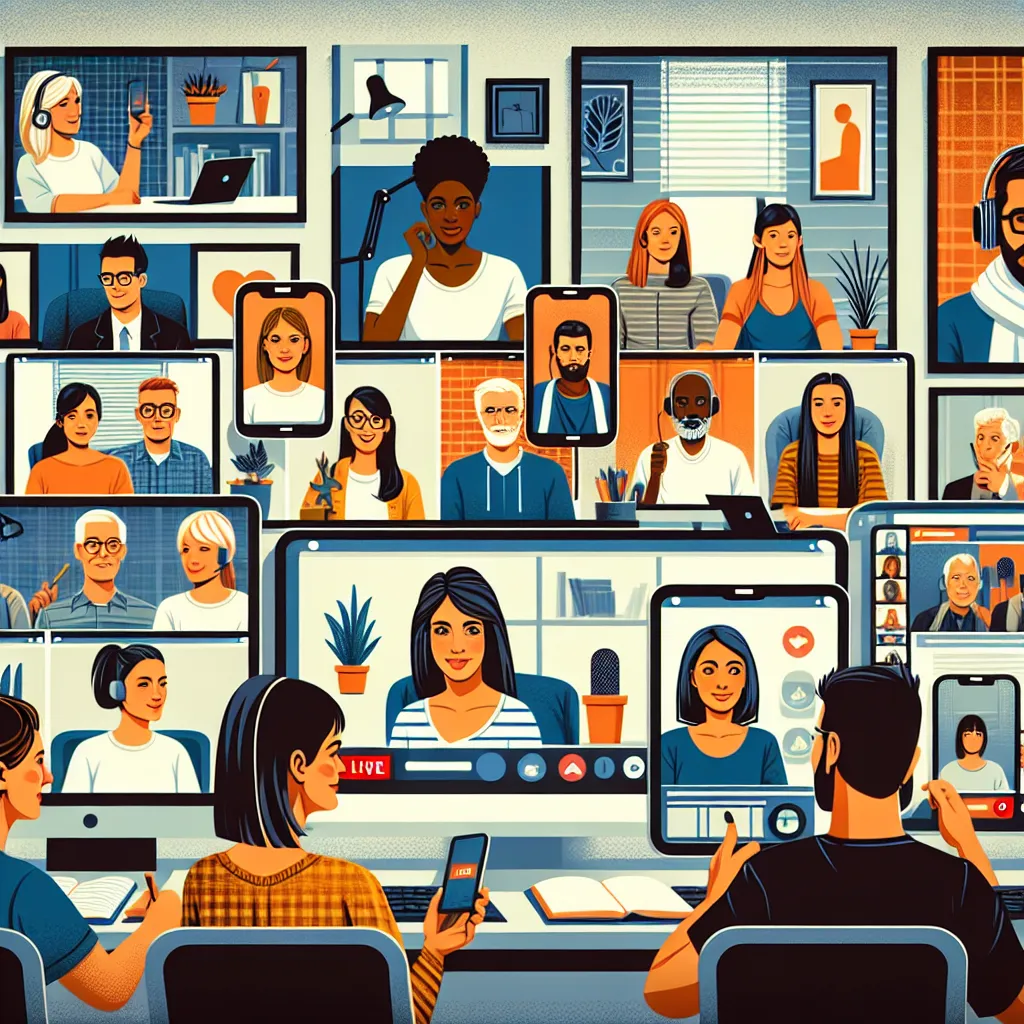Understanding the Legal Framework of Live Streaming
Understanding the Legal Framework of Live Streaming is essential for content creators and platform providers to navigate the complex landscape of digital media. As live streaming continues to grow in popularity, it brings forth a myriad of legal and ethical considerations that necessitate careful attention.
From a legal standpoint, copyright law plays a pivotal role in live streaming. Content creators must be well-versed in the concept of fair use and understand the implications of broadcasting copyrighted material. Additionally, they should establish clear ownership of the content being streamed to avoid potential infringement issues. Moreover, the use of trademarks and intellectual property in live streaming requires vigilance to prevent unauthorized usage.
Privacy rights also loom large in the legal framework of live streaming. With the ability to broadcast real-time content to a global audience, ensuring compliance with privacy laws and obtaining necessary consents from individuals appearing in the stream is imperative. Furthermore, understanding the nuances of defamation and ensuring that live streaming content does not violate the rights of others is crucial.
Furthermore, regulations such as the Children’s Online Privacy Protection Act (COPPA) and the General Data Protection Regulation (GDPR) in the EU have implications for live streaming, and content creators must navigate these laws to protect both themselves and their audiences.
Platform providers are equally responsible for understanding the legal framework of live streaming. They must implement clear terms of service that outline acceptable content, copyright infringement policies, and procedures for addressing legal complaints. Additionally, they should have mechanisms in place to respond to requests for content takedown and comply with legal obligations regarding user data protection.
In conclusion, comprehending the legal landscape of live streaming is paramount for all involved parties. Content creators and platform providers must adhere to copyright, privacy, and data protection laws to ensure ethical and lawful live streaming practices.
Ethical Implications of Live Streaming Content
When it comes to live streaming, content creators and platforms need to navigate a complex landscape of legal and ethical considerations. One crucial aspect that requires careful attention is the ethical implications of live streaming content. With the ability to broadcast in real time to a potentially vast audience, live streamers must be acutely aware of the impact their content can have.
One of the primary ethical concerns in live streaming is ensuring that the content adheres to community guidelines and standards of decency. This includes refraining from broadcasting hate speech, violence, or any form of discriminatory behavior. Additionally, live streamers should be mindful of the potential impact their content can have on vulnerable individuals, especially when broadcasting sensitive topics or events.
Furthermore, issues of privacy and consent are paramount in the ethical considerations of live streaming. Content creators must obtain consent from individuals who are featured in their streams, particularly in public or private spaces where privacy expectations may differ. Failing to respect individuals’ privacy can lead to legal repercussions and reputational damage.
Another crucial aspect to consider is the potential for exploitation and the psychological well-being of both content creators and their audience. Live streamers should be wary of crossing boundaries or engaging in behavior that could be emotionally manipulative or harmful to their viewers. Maintaining a healthy and ethical dynamic with the audience is essential for the long-term sustainability of live streaming content.
In conclusion, the ethical implications of live streaming content require careful attention to ensure that the content aligns with ethical standards, respects privacy and consent, and prioritizes the well-being of both creators and viewers. By upholding these ethical considerations, live streamers can foster a responsible and sustainable environment for creating and consuming live content.
Navigating Privacy and Copyright Issues in Live Streaming
When engaging in live streaming, it is crucial to navigate the complex landscape of privacy and copyright issues to ensure compliance with legal and ethical considerations. Privacy concerns arise when individuals are livestreamed without their consent, potentially violating their right to privacy. It is imperative for live streamers to obtain consent from anyone who may be captured in their streams to avoid infringing on their privacy rights.
Furthermore, live streamers must be mindful of copyright laws when broadcasting content. Unauthorized use of copyrighted material, such as music, images, or video clips, can result in legal repercussions. To avoid copyright infringement, live streamers should either create their own original content or obtain proper licenses for any copyrighted material they wish to incorporate into their streams.
Navigating privacy and copyright issues in live streaming requires a comprehensive understanding of the legal frameworks governing these areas. By prioritizing consent, respecting privacy rights, and adhering to copyright laws, live streamers can mitigate the risks associated with legal and ethical considerations, ensuring a responsible and compliant approach to live streaming.





